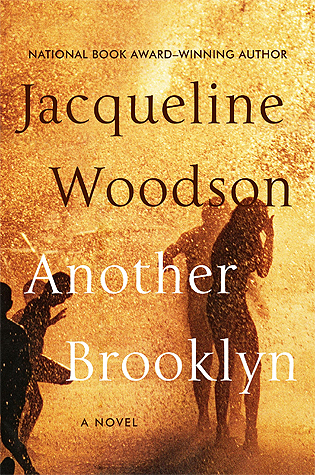 Books on Tap read Another Brooklyn by Jacqueline Woodson at Champion Brewery on February 7. Woodson, the current National Ambassador for Young People’s Literature and previous Young People’s Poet Laureate and National Book Award winner, is best known for her works for children and teens, often in verse. This novel is only one of two that she has written for adults. It follows August as she moves from Tennessee to Brooklyn with her father and brother, making friends with three girls and navigating black girlhood and New York in the 1970s. It too is written in verse, which struck one reader as genius to fit this complex story in in a concise, moving package. The format allows Woodson to be indirect, especially when addressing suicide, childhood sexual abuse and religion. Those of us who listened to the audiobook didn’t notice the format as much as those who read the print edition. One reader wondered if the dialog was italicized to emphasize that it was only reported to us through August’s memory.
Books on Tap read Another Brooklyn by Jacqueline Woodson at Champion Brewery on February 7. Woodson, the current National Ambassador for Young People’s Literature and previous Young People’s Poet Laureate and National Book Award winner, is best known for her works for children and teens, often in verse. This novel is only one of two that she has written for adults. It follows August as she moves from Tennessee to Brooklyn with her father and brother, making friends with three girls and navigating black girlhood and New York in the 1970s. It too is written in verse, which struck one reader as genius to fit this complex story in in a concise, moving package. The format allows Woodson to be indirect, especially when addressing suicide, childhood sexual abuse and religion. Those of us who listened to the audiobook didn’t notice the format as much as those who read the print edition. One reader wondered if the dialog was italicized to emphasize that it was only reported to us through August’s memory.
We first discussed the title: what are these other Brooklyns? August and her brother are confined to their apartment when they first move in, and can only observed life on the street below. During the novel, she reflects on the Brooklyn she remembers and the one that her brother still lives in. There’s also the Brooklyns that become home to immigrants from all over the world.
Woodson herself grew up as a Jehovah’s Witness and August’s father introduces Nation of Islam to the family. August appreciates the order that the women of the Nation bring to the apartment but it is her brother who embraces the tenets and uses it to organize his life. August, in reaction to her mother’s suicide and the silence around it, becomes an anthropologist who studies death practices around the world. Despite their differences, the siblings remain realistically respectful as adults.
August’s mother’s death is itself a ghost in the novel. As a child she tells herself and her brother that their mother will return any moment. Her father tells her she knows what is in the urn in the house but never declares it is her mother’s ashes. As a teenager, she loses her voice. We disagreed if this was a literal lack of voice but either way, she begins to see a therapist. This is around the same time that her friend Gigi commits suicide, about which August feels guilt for not being a closer friend. We agreed that these events inspired August to study anthropology.
The book is specifically about black girlhood, but can be used as a lens to look at girlhood universally. The four girls describe their friendship as a forcefield against harassment and danger. Together, they say things to men and boys that we could never say as individuals. They protect and soothe each other and share joyous experiences. Despite her mother’s warning against female friendship, it is the thing that made August’s Brooklyn what it was. Gigi’s suicide, Sylvia’s teen pregnancy and Angela’s mother’s murder break the quartet apart. Years later as an adult August sees Sylvia on the subway but chooses to get off before they can speak. We were divided on the lasting strength of childhood friendships in our own lives, but it’s clear that these relationships were formative (and not often seen in fiction).
More Information:
About the author
About the book
Other works
Interviews with the author
Read Alikes:
Kwame Alexander
Homegoing by Yaa Gyasi
How to Love a Jamaican by Alexia Arthurs
Little Women by Louisa May Alcott
Mislaid by Nell Zink
Purple Hibiscus by Chimamanda Ngozi Adichie
Books on Tap Information:
- March 7 The Tea Girl of Hummingbird Lane by Lisa See
- April 4 Nickel and Dimed by Barbara Ehrenreich
- May 2 The Book of Unknown Americans by Cristina Henriquez
Have a suggestion for future titles? Add them to this list.
Previous titles
Posted in Books on Tap